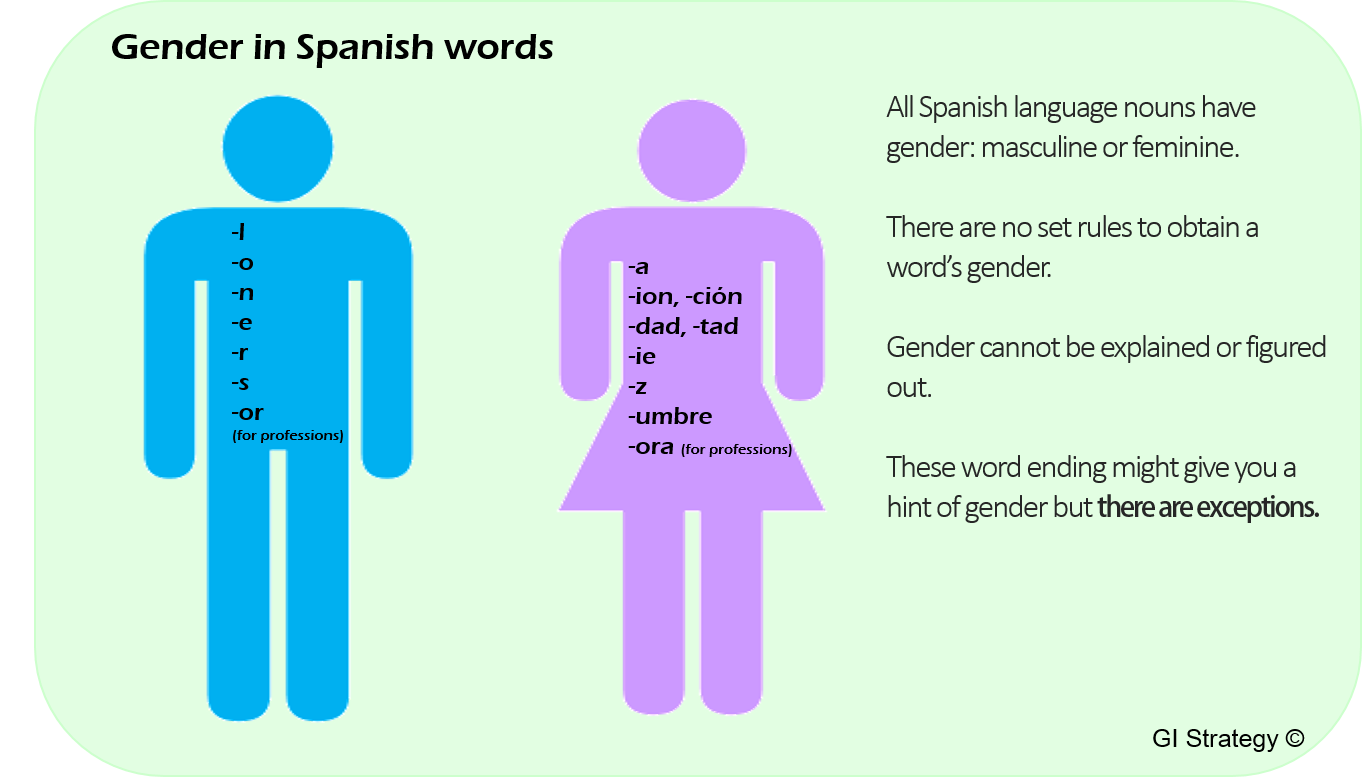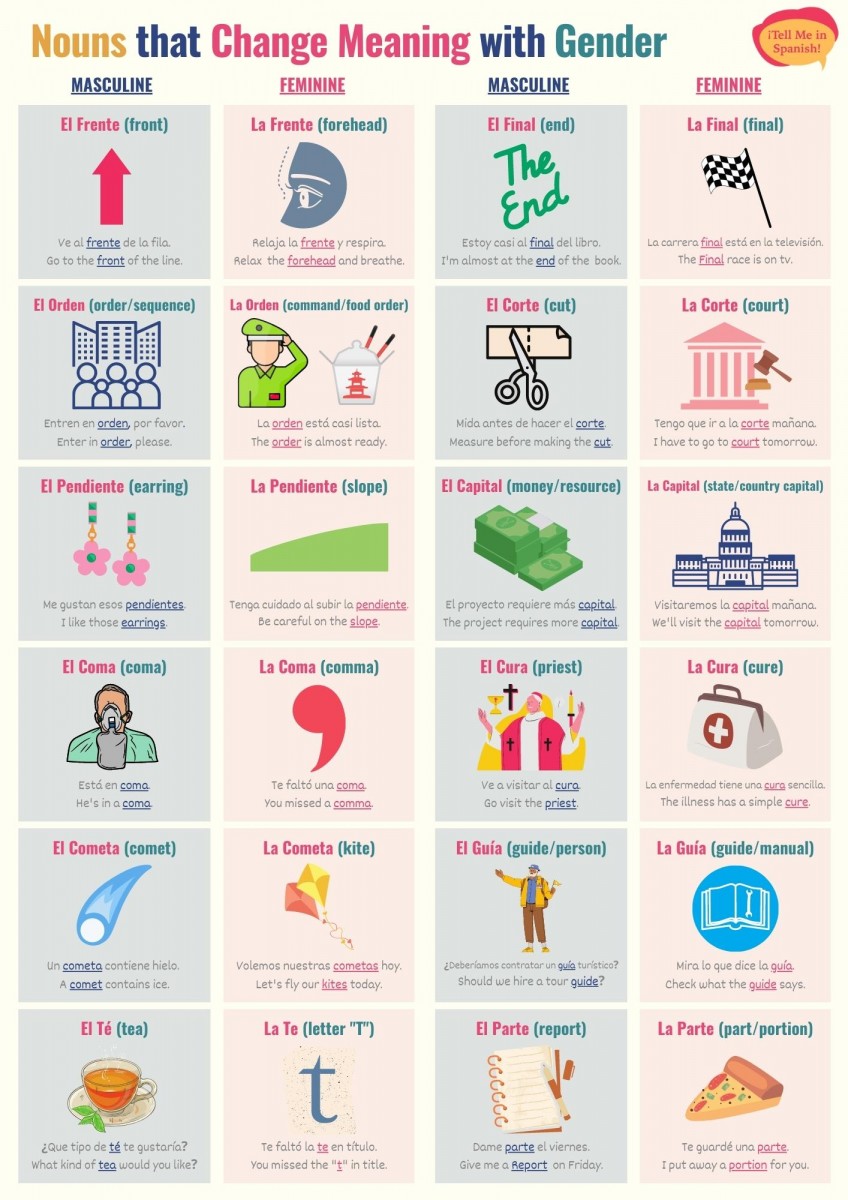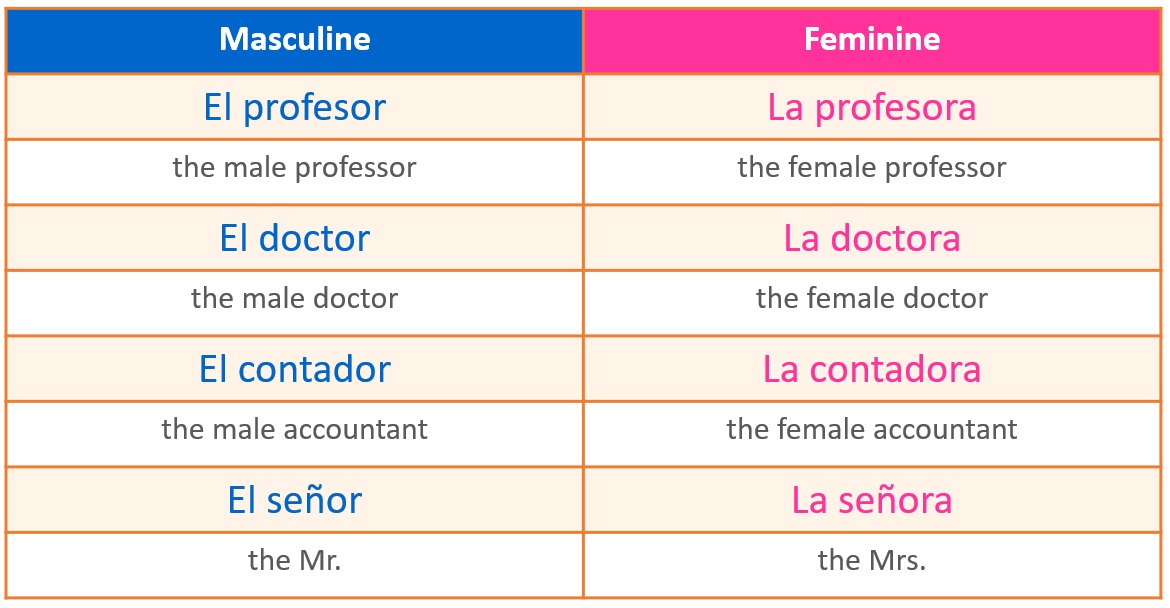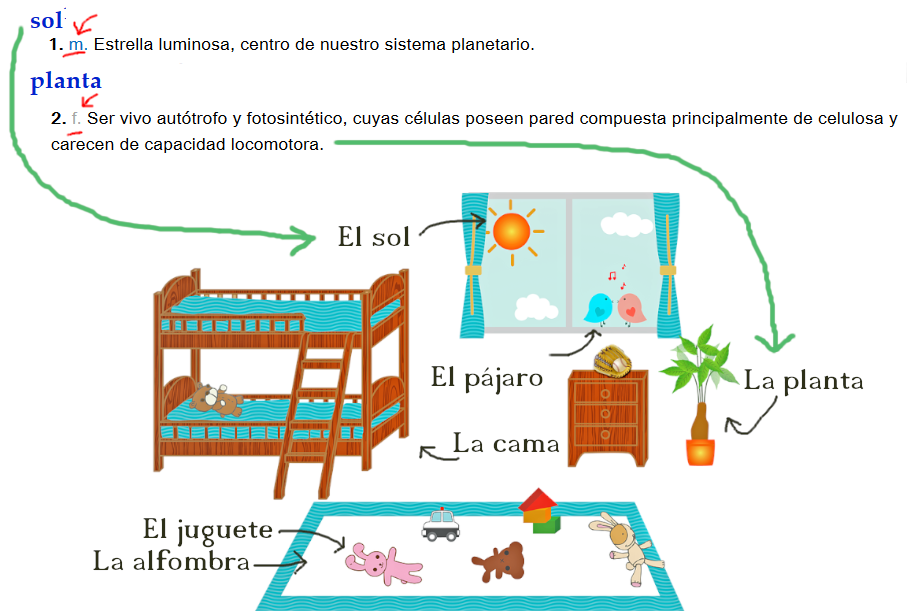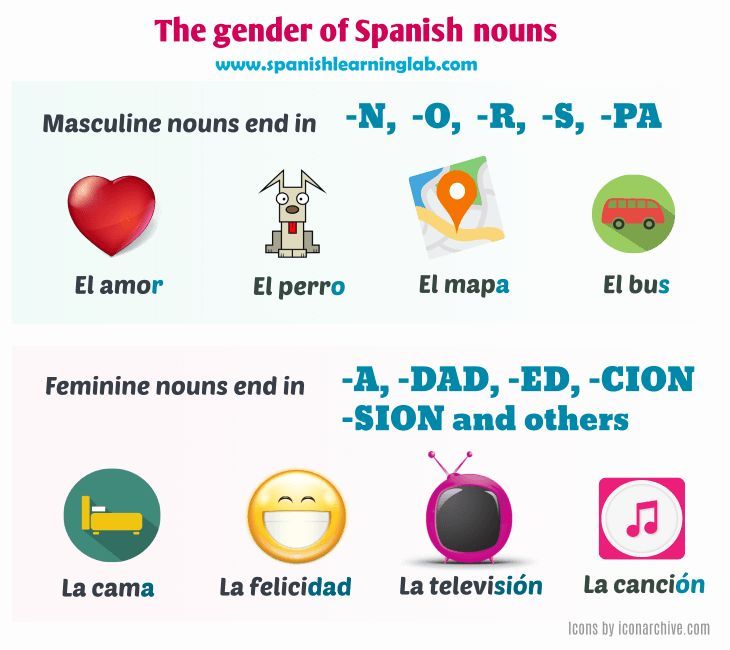Brilliant Tips About How To Tell If A Spanish Word Is Masculine Or Feminine
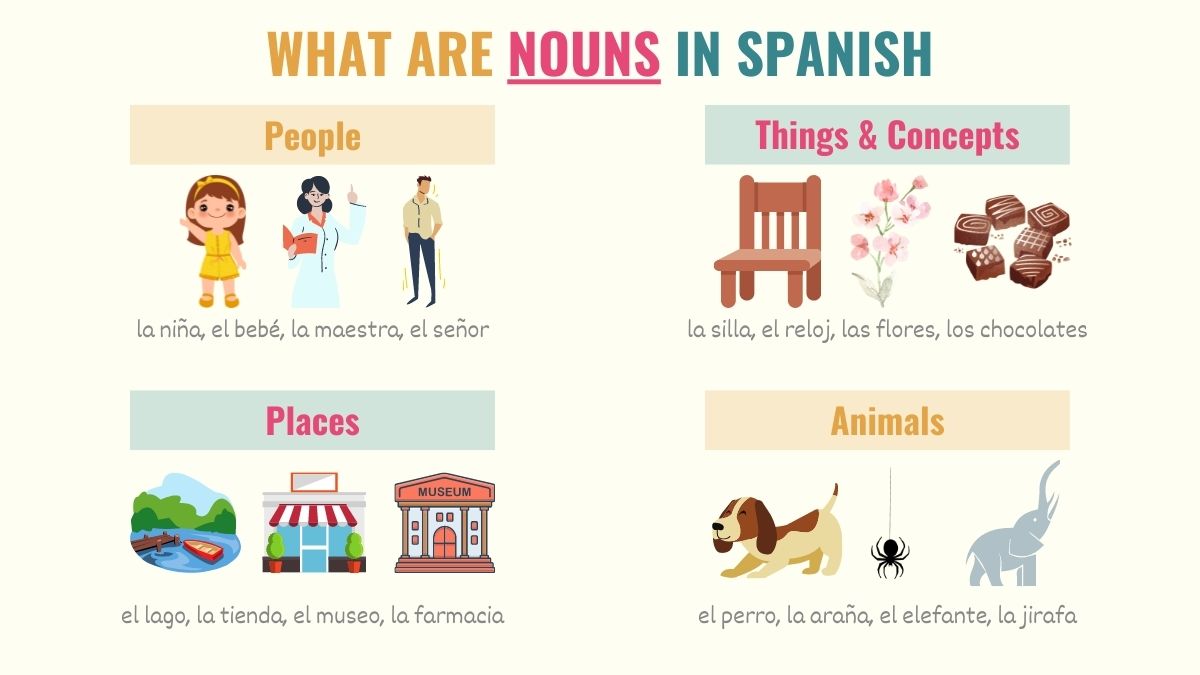
Most nouns that end in “o”, “e”, “an accented vowel” or “ma”;
How to tell if a spanish word is masculine or feminine. Nouns that end in “ama” or “ema” are often. This is called their gender. In fact, there are general rules to know.
Let’s start with something simple: Result there are a few general rules you can follow to determine if a noun is feminine or masculine. Result how do you form the masculine and feminine of spanish nouns?
Nouns that end in “a” are feminine. Many spanish words can be used to talk. Result have you ever wondered how to tell whether a word is masculine or feminine in spanish?
Result grammatical gender is a property of spanish nouns. Pay attention to the ending of the noun in spanish. Result instructor janet long view bio.
Both are masculine in spanish, but when translated to french they become feminine. Result take the spanish words for “colour” and “tooth”: Result the first thing to take into account is that nouns in spanish have a gender:
Picture the following sentence in your mind. One of the distinctive features of the spanish language is its system of grammatical gender, where nouns are categorized as either. Result not only do you have to remember that nouns such as césped means ‘lawn’, you also have to remember that ‘lawn’ in spanish is masculine:
Learn about masculine and feminine nouns in spanish. The word for “gender” in spanish is género, and our two. Discover word endings used for feminine and masculine.
As well as those that end with consonants except “d”, “z” or “ción” are generally masculine nouns. This attribute allows us to classify words as either masculine or feminine. Result there are some general rules for identifying the gender of nouns.
Usually, you can gauge by the endings of certain nouns whether they are masculine or feminine. Feminine or masculine, but they can also be singular or plural. Nouns that end in “dad,” “tud,” “sión,” or “ción” are feminine.
Nouns that end in “o” are masculine. Result in spanish, all nouns are either masculine or feminine. Whenever you are using a.


